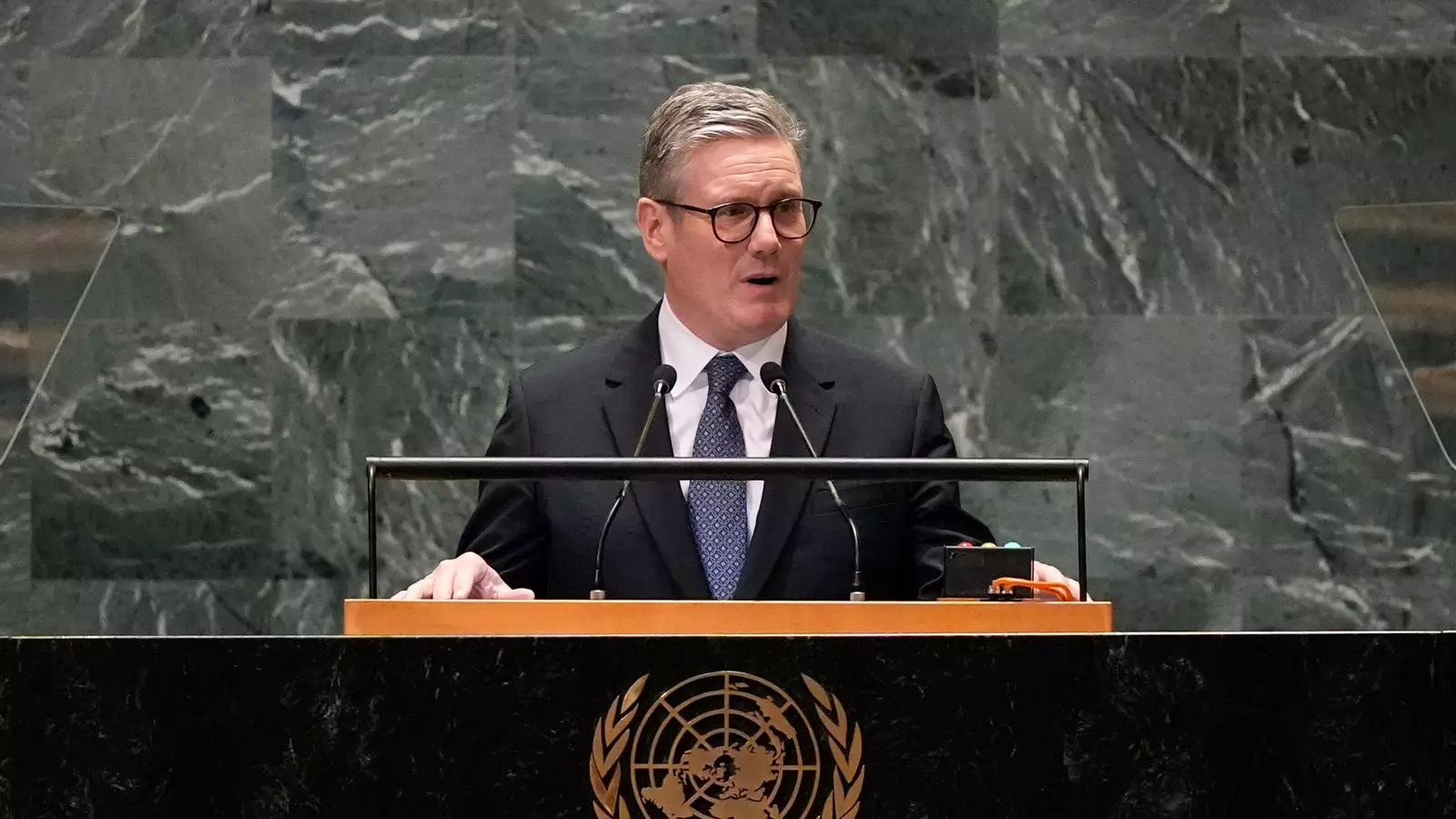In a striking appeal to global leaders at the United Nations General Assembly, UK Prime Minister Sir Keir Starmer emphasized the dire need for a ceasefire between Israel and Hezbollah. The longstanding conflict between these two entities poses an immense threat not only to their immediate regions but also to global peace and stability. Starmer asserted that “escalation serves no one,” echoing a sentiment shared by many who advocate for diplomatic efforts over military action. With the backdrop of Israeli Prime Minister Benjamin Netanyahu’s firm declaration of continued military operations, the prospect of negotiating peace appears increasingly nebulous. As hostilities rage on, Starmer’s admonition to “step back from the brink” highlights an urgent need for cooler heads to prevail.
Starmer’s address, marked by a sense of urgency, urges all stakeholders to prioritize dialogue and reconciliation. He stated that an immediate ceasefire is essential for creating a conducive environment for meaningful negotiations, pressing the need for collaborative efforts that transcend traditional geopolitical boundaries. The challenges inherent in achieving lasting peace in such a complex conflict are manifold. Historical grievances, territorial disputes, and ideological divides complicate the pathway to diplomacy, with both sides entrenched in their positions. Starmer articulated a vision of collective action within the UN framework, advocating for unity among nations in pursuing a long-term resolution to this crisis and others like it.
In his remarks at the UN, he invoked the necessity for the UN to evolve from mere conflict prevention to proactive engagement for peace. This shift in approach could symbolize a new chapter in international relations, one where diplomacy is prioritized over military intervention. However, the effectiveness of this strategy hinges on the willingness of nations to cooperate and share the burden of ensuring global security.
Sir Keir Starmer: A Voice Against Aggression
In tandem with addressing the Israel-Hezbollah conflict, Starmer’s discussions encompassed broader geopolitical issues, notably criticizing Russia for its aggressive actions in Ukraine. His comments reflected a growing consensus among Western nations regarding the need for accountability for such violations of international law. By framing Russia’s invasion as “the greatest violation of the charter in a generation,” Starmer appeals to a shared sense of justice and morality among UN member states. This highlights the importance of solidarity in addressing threats to peace and the rule of law.
The stark contrast between Starmer’s calls for ceasefire and collaboration and Netanyahu’s commitment to military action underscores a significant divide in the international approach to conflict resolution. While one side appears to gravitate towards ongoing aggression, the other seeks pathways to peace. This clash of priorities raises the question of how longevity in peacekeeping efforts can be achieved if key players remain deeply divided on their strategic responses.
Domestic Commitments and Climate Initiatives
In a wider context, Starmer’s speech also covered domestic policy, particularly regarding the environment. A notable proposal was his plan to funnel pension and insurance funds into initiatives targeting climate change and sustainable development. By pledging “billions” toward these causes, he aims to bolster the UK’s environmental efforts while also stimulating private investment for economic growth. This represents a critical intersection of domestic policy and global responsibility, reminding us that national leaders must balance immediate needs with long-term sustainability.
Starmer’s commitment to tackle climate issues underscores an understanding that the health of our planet is intrinsically linked to global security. Amid tumultuous international relations, climate change poses an existential threat that requires collaborative solutions; failing to act collectively may exacerbate socio-economic instability, ultimately sparking further conflict.
As the world grapples with complex conflicts and pressing challenges, leaders like Sir Keir Starmer represent a crucial voice advocating for diplomacy and cooperation. His engagement with other global leaders, including an anticipated meeting with former President Donald Trump, reflects a recognition of the interconnected nature of current geopolitical dynamics. While the backdrop of the upcoming U.S. elections complicates interactions, the importance of sustained dialogue cannot be overstated.
Ultimately, the effectiveness of Starmer’s appeal for peace and collaboration hinges on the collective will of nations to heed these calls. The road to peace may be fraught with difficulty, yet every cessation of hostilities is a step towards a broader vision of stability, security, and shared humanity.


Leave a Reply